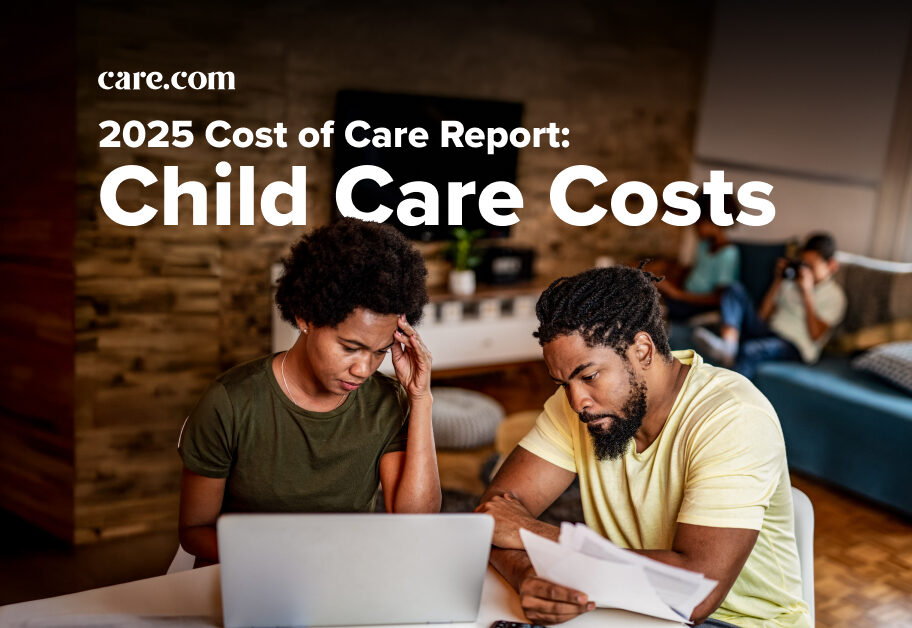Most new parents are encouraged to breastfeed, but not all parents are completely aware of what the specific benefits of breastfeeding are. What’s more, they may simply think of nursing as a healthy choice for baby without realizing there are also serious benefits of breastfeeding for mom.
Understanding that breastfeeding has health benefits for both babies and moms is one of the best kept secrets about breastfeeding, says Dr. Rebekah Diamond, a pediatric hospitalist in New York City and assistant professor of pediatrics at Columbia University.
Being informed about these benefits is also one of the things that can motivate new parents to keep going in those early postpartum weeks, especially as they face breastfeeding challenges.
“Breastfeeding is hard work for everyone and will always have challenges,” says Diamond. “But the physical and emotional experience of breastfeeding, once it’s established, can be a truly wonderful and meaningful part of becoming a parent.”
The benefits of breastfeeding: An overview
You may wonder, what’s the big deal about breastfeeding? Why is it so highly encouraged? For one, breast milk is “a customized food that is created by a mother’s body specifically for her offspring,” says Nicole Peluso, a board certified lactation consultant at Aeroflow Breastpumps.
Join Care for free
In addition, understanding the benefits of breastfeeding can help you get through early challenges, says Dr. Jenelle Ferry, board-certified neonatologist and director of feeding, nutrition and infant development at Pediatrix Medical Group.
Breastfeeding “isn’t always easy right away, can take more work to start than formula feeding and requires a single parent doing the bulk of the feeding work,” Ferry says. Being aware of the benefits of breastfeeding can motivate you to keep going, she adds.
Here is a snapshot of the breastfeeding benefits for mom and baby.
Benefits of breastfeeding for mom
Let’s start by looking at the many benefits of breastfeeding for moms.
Helps the uterus contract
Many benefits of breastfeeding can be felt in the days right after giving birth. For instance, a baby’s suckling can help the uterus contract back to its normal size more quickly and decrease postpartum bleeding.
Balances postpartum moods
Breastfeeding releases hormones like oxytocin and prolactin that are known to enhance moods and offer a mental health boost. There is some evidence that mothers who breastfeed are less at risk for experiencing postpartum depression.
Reduces cancer risks
Breastfeeding can also lower a mother’s risk of breast, ovarian and endometrial cancers, Ferry says. This is due to an overall decrease in exposure to estrogen in the months that a mother breastfeeds.
Lowers risk of diabetes and cardiovascular diseases
Breastfeeding is associated with a lower overall risk of type 2 diabetes and cardiovascular diseases like high blood pressure and high cholesterol. For those who had gestational diabetes, “greater than one to three months of lactation has been shown to decrease the risk of developing type 2 diabetes within five years after pregnancy by as much as 80%, ” Ferry says.
Convenience and cost-efficiency
Most moms will tell you that their favorite thing about breastfeeding is how convenient and low-cost it can be. “One of my favorite things about breastfeeding has been how much it simplified caring for my babies,” says Alexandra Fung, a mom of four from Buena Park, California, and co-founder of Upparent. “I’ve loved not having to deal with bottles, with carrying around formula any time we go out, with getting up to go to the kitchen in the middle of the night to prepare a bottle, and with my last two [kids], not even having to set aside time to pump.”
Benefits of breastfeeding for baby
You may be aware that breastfeeding is good for babies, but here are some of the most important and helpful benefits to keep in mind.
Protects from respiratory viruses
Respiratory viruses like COVID, flu and RSV are everywhere, and they can be particularly serious for infants. “One benefit of breastfeeding is that it can help protect your baby against lower respiratory tract infections,” says Dr. Alexis Monique Javier, a pediatrician with Children’s Memorial Hermann Pediatrics. This is due to antibodies in breast milk that help boost immunity.
Reduces gastrointestinal infections
It’s not just coughs and colds that can be reduced with breastfeeding. “Breast milk reduces the risk of gastrointestinal illnesses, from mild ones like a stomach bug with diarrhea to severe ones like life-threatening infections in premature babies,” Ferry notes. This is likely due to factors in breast milk that stimulate intestinal growth and maturation, as well as help proliferate “good” bacteria in the gut, she explains.
“[Breastfed] babies receive passive antibodies from the mother. This helps develop the baby’s immune system.”
—Dr. Rachel Miller, OB/GYN
Decreases childhood cancers
Breastfeeding is linked to a decreased rate of many different types of childhood cancers, according to a 2024 cohort study published in the Journal of the American Medical Association. This includes a reduced risk of acute lymphoblastic leukemia, as well as childhood acute myeloid leukemia (AML), neuroblastoma and Hodgkins lymphoma.
Lowers the risk of SIDS
Babies who are breastfed are less likely to die of Sudden Infant Death Syndrome (SIDS), which tragically kills about 2,300 babies a year. In fact, one study shows that even just two months of breastfeeding — whether exclusively or partially breastfeeding — cuts a baby’s risk of SIDS in half.
Helps protect preterm babies
Breast milk is good for all babies, but plays a particularly helpful role in preterm babies. For instance, breast milk decreases the risk of a premature baby contracting necrotizing enterocolitis, a serious and sometimes life-threatening infection premature babies are susceptible to.
Why is breastfeeding important for babies?
Breast milk offers excellent, balanced nutrition for your baby, which is why the Academy of American Pediatrics (AAP) recommends exclusive breastfeeding for the first six months of life, when possible. But what really makes breast milk different from other foods is the way it benefits a baby’s immune system.
“Babies receive passive antibodies from the mother,” explains Dr. Rachel Miller, an OB/GYN practicing in the Charlotte, North Carolina area. “This helps develop the baby’s immune system.” Passive immunity is when someone receives immunity from elsewhere, rather than producing it themselves in reaction to a pathogen. In other words, breast milk offers your baby protection against viruses, bacteria and other threats, without them having to actually be sickened first.
This is important for infants, who are much more susceptible to severe disease than those of us who already have an established immune system. It’s why doctors generally see fewer serious cases of respiratory illnesses and ear infections in breastfed babies, adds Miller. Additionally, these protections are especially important for vulnerable babies, such as babies who were born preterm or who have medical complications.
Short- and long-term benefits of breastfeeding
There are both short-term and long-term benefits of breastfeeding for babies, Miller explains. Many of the short-term benefits involve protection from common childhood viruses and diseases such as colds, RSV, whooping cough, pneumonia, ear infections and gastroenteritis.
Longer term benefits of breastfeeding for baby include protection from the following:
- Type 2 diabetes.
- Childhood obesity.
- Allergies.
- Childhood cancers, such as leukemia and lymphoma.
Diamond points out that while these benefits should be celebrated, the association between breastfeeding and these outcomes isn’t entirely clear. “The data we have is correlations, and it’s not clear exactly how much this is pure cause and effect,” says Diamond. “But there is definitely an association between breastfeeding and life-lasting health benefits.”
Supplementing breastfeeding: is partial breastfeeding beneficial?
Breastfeeding can be extremely difficult sometimes. Many moms end up needing to supplement with formula due to issues like low milk supply or because they need to return to work and can’t keep up with pumping.
Read more:
Perhaps the most important thing to know about the benefits of breastfeeding is that any amount of breast milk you are able to provide for your baby counts. “It’s a tragic and common misconception that breastfeeding is all or none,” says Diamond.
“There are plenty of reasons why introducing some amount of formula will be beneficial … and this does not take away from the awesome benefits of breast milk that you do end up giving your baby.”
—Dr. Rebekah Diamond, pediatric hospitalist and assistant professor of pediatrics
Diamond says that breast milk has benefits for moms and babies, even in smaller amounts, and she urges moms not to compare themselves to other moms when it comes to how they feed their babies. And there are several great bottles for breastfed babies to supplement the nursing you continue to do.
“There are plenty of reasons why introducing some amount of formula will be beneficial in the short or long term,” she says, “and this does not take away from the awesome benefits of breast milk that you do end up giving your baby.”
The bottom line
Breastfeeding is amazingly beneficial for both moms and babies. But, in addition to understanding the benefits of breastfeeding, the biggest takeaway here for parents is that everyone is unique, says Javier, and it’s important not to compare your breastfeeding experience to someone else’s.
“Every mother and baby’s breastfeeding journey is different and comes with its own challenges, which is perfectly OK,” she adds. The most important thing is doing what’s best for your family and seeking support from doctors and lactation consultants when needed.
“Your pediatrician wants to support you as best as they can, so I encourage families to have conversations with their doctors if they have any concerns along the way,” Javier concludes.





